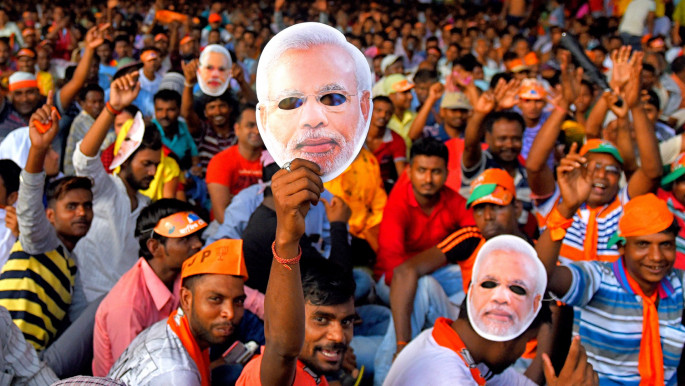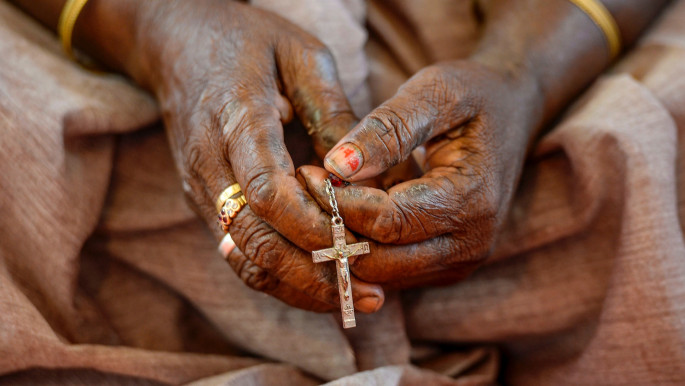Why India's BJP is shutting down Islamic schools in Assam
The law, which will come into effect from April this year, will lead to the closure of more than 600 Islamic institutions that run on funds provided by the government. The regional government has said it is not willing to spend funds on "religious" education from the state's coffers.
The Madrassa Education Board of the state, which until now controlled these Islamic schools, will also be dissolved. Currently, Assam is among 18 states in India where Islamic schools, or madrassas, are provided with central government aid.
Opposition parties see the move as a political stunt by the Bharatiya Janata Party (BJP) to polarise voters ahead of regional elections slated to be held in March this year.
"We are thinking of taking this issue to the Supreme Court," said Aminul Islam, a legislator from All India United Democratic Front (AIUDF), a regional opposition party in Assam.
Islam says the decision to ban Islamic schools was made impulsively and without any proper discussion with relevant stakeholders. The AIUDF and Indian National Congress - the two main opposition parties in the region - had staged a walkout in the state assembly after their demand to send the proposed bill to a special legislative committee for more deliberations was refused by the government.
 |
The law, which comes into effect in April, will lead to the closure of more than 600 Islamic institutions |  |
"This system (of state-run madrassas) has been in place since 1934. But the BJP government has taken a sudden step to abolish these institutions without taking into account the pros and cons of the decision. We have raised our voice against this legislation both within and outside the assembly and will continue to do so," Islam told The New Arab.
Debabrata Saikia, the leader of the opposition in Assam's provincial Assembly and a member of the Indian National Congress, says the government has introduced the law to divide the public along communal lines ahead of election season in the region.
 |
|
| Read more: India's 'Love Jihad' law: The BJP's latest weapon against Muslims |
"We have demanded that the act should be repealed," he told The New Arab. "Banning institutions is not going to solve anything. If the intent is to modernise education, the government should revise the curriculum and build better infrastructure. Proper thought and planning are required rather than randomly declaring the closure of institutes," Saikia added.
The government, however, is adamant that the move is necessary to 'reform' and 'secularise' education in the state. "The reforms in education are badly needed and this is a step in that direction," said Rupam Goswami, chief spokesperson of the BJP in Assam. He says the opposition is focusing on the madrassa ban because it has nothing else to oppose the government with.
"Everyone needs to understand that we have not closed all madrassas but only those which were aided by the government. We can't teach the Quran with public money. We will completely revamp these institutions, so that proper education is imparted," Goswami told The New Arab.
However, critics of the government say the move to disband Islamic schools has nothing to do with 'secularisation' of the education system as madrassas aren't only religious institutions.
 |
Leaders of the ruling Bharatiya Janata Party have often vilified madrassas as centres of Islamic 'indoctrination' |  |
"The madrassas don't only impart the teachings of religion. Apart from the Quran and Islamic theology, there are courses on Arabic and Islamic literature, Islamic and Indian history. This is not merely religious education. This comes under the purview of the right to education. Many students from these institutes go to different gulf countries and get jobs. They don't just end up becoming clerics," said Aman Wadud, a human rights lawyer from Assam.
Leaders of the ruling Bharatiya Janata Party have often vilified madrassas as centres of Islamic "indoctrination". Some of the leaders of the ruling party have even called them "centres of terrorism" and "breeding grounds for fundamentalism".
 |
|
| Read more: In Modi's Hindu nationalist India, anti-Christian violence is on the rise |
Muslim activists say the decision to close madrassas is in line with the BJP's anti-Muslim agenda. Led by Prime Minister Narendra Modi, the BJP has passed a raft of legislation over the last few years that critics say is "discriminatory" on the basis of religion.
"The government is intolerant towards minorities which is pretty clear. It doesn't want to fund madrassas. They (government) are acting with a negative intent. When we talk of minority educational welfare then religious education has an important role. It has also been guaranteed in the Indian constitution," Shoaib Jamayee, National Spokesperson of the Indian Muslim Foundation, told The New Arab.
"If the government wants to improve education then they need to introduce subjects other than those already taught in schools. The so-called mainstreaming of education cannot be done at the cost of completely decimating the structures we already have in place," Jamayee added.





 Follow the Middle East's top stories in English at The New Arab on Google News
Follow the Middle East's top stories in English at The New Arab on Google News


